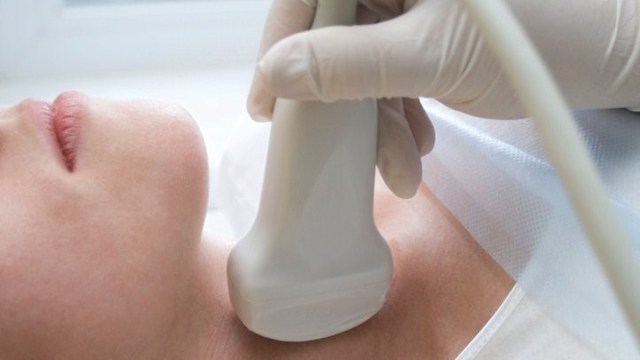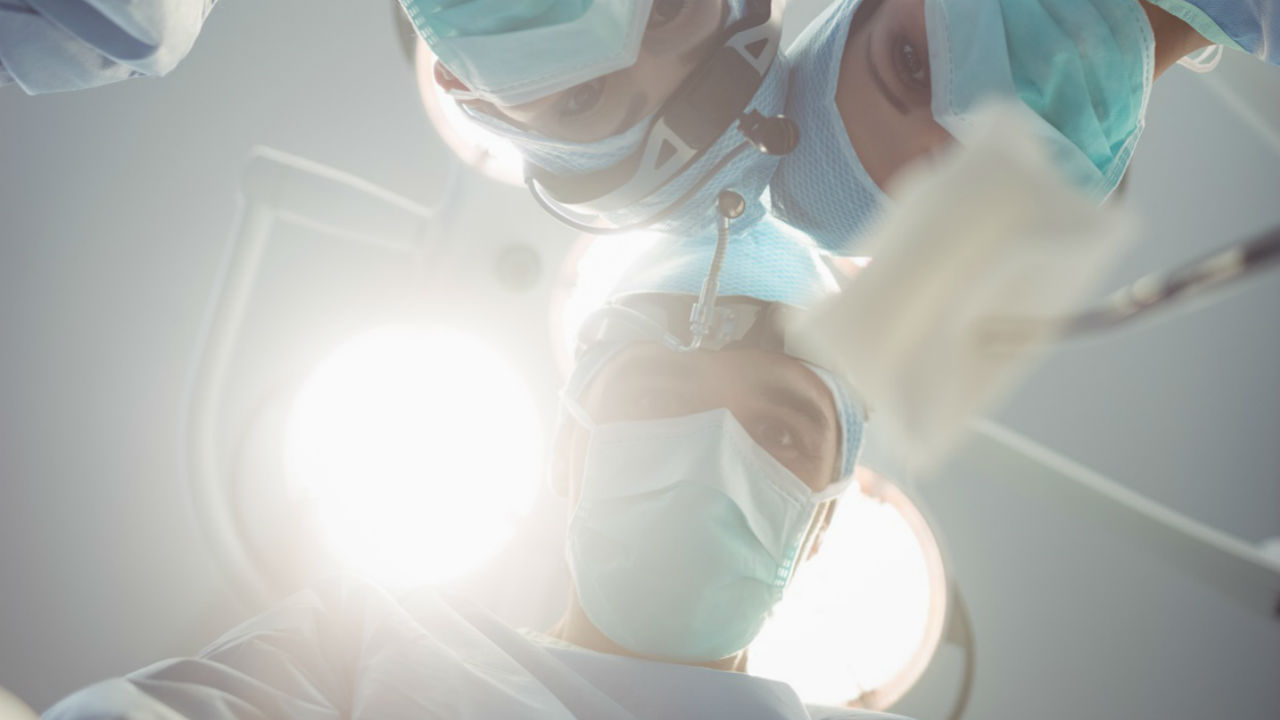Hi! I'm 25 years old. I just found this website. I have a long, sordid medical history, resuling from a genectic condition called Cowden's Syndrome. I have had thyroid cancer, brain tumor, and fibroadenomas in the breasts. I had some more funny looking bumps in the breasts pop up and from a ultrasound guided core biopsy they determined them to have "atypical cells, but benign" They removed them today. The doctor thinks that if they appear to have anyt cancer whatsoever I should have a bilateral masectomy with reconstrucion. I have a 50% risk of contracting breast cancer, the doctor said it's almost inevitable. My question is-do you think this would be an appropriate step? Is there any other options? And if I do have this done-what is the recovery time for this? I have already decided to go back to school in a few weeks (nursing school, go figure) and don't want to put that off. Granted, none of this may need to happen, he may tell me Friday that everything is fine. BUT I wanted to be as well researched on the subject as posible. Any comments, advice, etc would be greatly appreciated. Thanks os much!
All user-generated information on this site is the opinion of its author only and is not a substitute for medical advice or treatment for any medical conditions. Members and guests are responsible for their own posts and the potential consequences of those posts detailed in our Terms of Service.




Add a Comment5 Comments
Well good news! The doctor said he saw no sign of cancer OR atypia. So he put a hold on the mastectomy talk (for now) He was very surprised, he said he expected to see DCIS. He wants me to see an oncologist to manage my breast cancer risk which is fine by me. With my risk, he says it's inevitable that I'll get it at some time. I feel like I dodged a bullet this time. Thank you so much for all of your information. I'll definetely be checking this stie for other info. Now, I get to register for school tomorrow :)
August 10, 2009 - 8:26pmThis Comment
Meechell,
August 5, 2009 - 8:02amYou're so welcome. It's what we're here for! Our founder had serious medical issues and went through some horrible experiences because she couldn't find the information that she needed to make informed decisions. That's why she started EmpowHer. Please come back and update us. And if there's anything more we can do, please don't hesitate to ask.
This Comment
Thanks I really appreciate all of the info. Everyone I've talked to keeps saying it's my decision to do whatever I think will make me happy. And if I do it, it's one less medical concern I have to worry about. But its a major thing....I don't know my head is in all different directions right now. I try not to feel too sorry for myself, because I mean honestly what will that help? I've got a call into my genectic counsellor to see what her opinion is.
I'm sure at some point soon I will go with the surgery. Breast cancer is scary and while I don't doubt I could make it through chemo and radiation, I'd rather not :)
And thank you for the last comment about me being a nurse. I sure hope so. It definetely made me smile :)
August 4, 2009 - 4:41pmThanks all and have a good night!
This Comment
Hi, Meechell,
So glad you found us here at EmpowHer!
You might be interested in this very thorough and insightful story done by CBS News, even though it is dated from 2001. They did the story after a report in the New England Journal of Medicine that found that bilateral mastectomy substantially reduces the incidence of breast cancer in high-risk patients. They interviewed Dr. Michael Osborne, chief of breast service at New York Hospital-Cornell Medical Center.
An excerpt:
"Two groups of women should consider this procedure: One group consists of those who have had breast cancer in one breast and elect to have the other breast removed. This is called a contralateral prophylactic mastectomy. The other group is those women who we know are at high risk--women with a strong family history of breast cancer. Especially families in which women younger than 40 or multiple family members have breast cancer. And, those who've had genetic testing and carry BRCA1 or BRCA2, the so-called breast cancer genes. Studies have predicted that wmen with these genes have an 85% chance of developing breast cancer over their lifetime. Also, Another group is women who become incapacitated by the fear of developing breast cancer.
"This is an extraordinarily radical procedure. Is this the procedure that you think women should consider?
"I believe that no woman should be told that she should have a prophylactic mastectomy. I think her physician needs talk to her about the risk and evaluate those risks each year and project what the risk will be over her lifetime. The physician also needs to be sure to tell her that prophylactic mastectomy is not the only option.
"What are some of the other options?
"Other options include close surveillance. Advances are being made in that area for very early detection. There are also preventive drugs like the anti-estrogen tamoxifen, which can reduce the risk by about 50%.
"How does the patient decide which course is best for her?
"If a woman is looking not to reduce the risk but just to have early detection then surveillance is a good option. If she is looking to reduce the risk but doesn't want to go through such a radical procedure then an anti-estrogen such as tamoxifen may be right. If she wants to minimize the risk down to the lowest level possible, which looks to be 99% or better, then a prophylactic mastectomy is the only option available to get to that level of risk reduction."
There is much more. Here's a link to the full interview:
http://www.cbsnews.com/stories/2002/01/31/health/main327226.shtml
Here is a link to the National Cancer Institute's Q&A page on preventative mastectomy:
http://www.cancer.gov/cancertopics/factsheet/Therapy/preventive-mastectomy
Here's a forum where women are discussing their immediate recovery after surgery:
http://community.breastcancer.org/topic/91/conversation/692749
And another with a detailed explanation of her recovery:
http://www.healthcentral.com/breast-cancer/c/question/787613/63163
Here is an excerpt about mastectomy recovery from Lifetips.com:
"A mastectomy is a surgically-invasive medical procedure in which a substantial amount of breast tissue is removed. Additionally, the lymph nodes under the arm may also be taken out and some patients opt to have a breast reconstruction surgery with the mastectomy. For these reasons, patients should not expect recovery from a mastectomy procedure to be a simple process. In fact, mastectomy recovery may take approximately three to six weeks. Some patients experience symptoms such as slight swelling for up to six months after the procedure is performed.
"Compression bandages and drains are usually part of the mastectomy recovery process. Compression bandages are routinely applied to mastectomy patients once the procedure is completed. The patient wears these bandages for one to two weeks before switching to compression garments which serve a similar purpose. Additionally, many mastectomy patients have drains inserted to facilitate the removal of fluids around the surgery site. This helps to prevent complications such as swelling, bleeding and bruising. These drains will be left in until the amount of fluid they are accumulating is minimal. Patients will likely only have to use the drains for one to two weeks after the surgery is completed.
"Patients recovering from a mastectomy procedure will likely be able to return to work after approximately one week assuming the work is not physical in nature. The patient may have limitations on physical activities for approximately the first six weeks after the surgery. After this point most patients are fully recovered, although some patients may experience minor swelling that persists for as long as six months."
Which sounds as though even if you had the procedure done soon, you could still return to nursing school on schedule.
Here's that complete page:
http://breastprocedures.lifetips.com/cat/64739/mastectomy/
Meechelle, when you ask whether this seems an appropriate next step, you have to know that only you and your doctor and support system can find that answer. You're doing everything right here. You're asking questions. You're seeking alternatives. You're gathering information and trying to make an informed decision. People who do that have a much better chance of being happy with their decisions later, you know? It certainly wouldn't be overreacting to your situation -- at 25, you have already dealt with more than your share of medical concerns, and I'm sure that gives you good insight about your body, your mental attitude and your healing tendencies.
I do know one thing for sure, though. You're going to make an awesome nurse.
August 4, 2009 - 9:18amThis Comment
Hello, meechell:
Goodness, you've had and have a lot to deal with! Thank you for sharing your story, and I hope we can get some answers for you as quickly as possible.
I think, though, that the decision should be made based on your discussion with your doctor. Because we do have several survivors of mastectomy, perhaps one of them would have some insight to offer. Meanwhile, I'll see if we can get an Expert response for you.
August 3, 2009 - 7:11pmThis Comment